Why Speed Up Recovery?
You certainly know that immediately after training your athletic performance deteriorates: endurance and strength decline, and muscle volume decreases. This is an objective process.
All returns to "normal" after rest, let's call this process compensation. Moreover, indicators can even improve: strength and endurance increase, muscles gain in volume. This process is called supercompensation.
If you start the next training session before the body has gone through the compensation phase, you risk further impairing your indicators - as a result, more time will be required for their recovery and enhancement.
On the other hand, the more frequently you train a certain indicator, the greater success you can achieve. That is, if you can reduce the time the body needs for compensation and supercompensation, your progress will inevitably accelerate.
There are training methods that involve putting an athlete into a state of "pit" - with constant and quite prolonged deterioration of sports indicators, followed by phases of compensation and supercompensation.
Such methods are most often used in cyclic and team sports, martial arts, but can also be used simply to increase muscle volume. However, I will definitely not discuss them here.
For the average gym visitor or someone who runs or swims simply to improve well-being and tone muscles, there is absolutely no need to accelerate recovery in any way.
Here everything is maximally simple: if you lack time for recovery, you should reduce the volume and/or intensity of training. Or simply increase the interval between training days.
It's a different matter if you are purposefully working on improving a certain indicator – usually this happens when you are preparing for competitions (or simply challenging yourself – in my view, this is the main competition in life).
In this case, it indeed makes sense to speed up recovery after training. As much as it is generally possible.
Types of Loads and Recovery
The recovery process very much depends on which specific sports parameter you are training: if it's endurance, including strength, it is planned one way, if it's just strength – somewhat differently, muscle volume – entirely differently.
I have planned a book "Guide to Recovery" – it will also discuss recovery after training, albeit far more in detail.
For now, I will not spread myself thin and will focus exclusively on recovery after a typical workout with "iron," the goal of which is usually muscle volume.
Recovery After Training
Recovery of the body after training touches several aspects:
- recovery of micro-damages to ligaments and muscles
- recovery of the central nervous system
- recovery of glycogen stores in muscles (and in the liver, of course, but there it recovers very quickly anyway).
- normalization of lactic acid levels
- completion of inflammatory processes in muscle tissue
- normalization of cortisol levels
Microtraumas
Microtraumas to muscles and connective tissue are an integral part of the training process.
Usually, they heal before the next training session, but if you have days of heavy training one after another, small damages will not have time to heal – moreover, they will be exacerbated, risking turning into a serious injury.
To some extent, growth hormone and/or IGF-1 can speed up the healing of damages. Along with growth hormone, it is advisable to take collagen – this will make the process go more smoothly. As a preventive measure, you can take glucosamine. Or make injections of chondroitin – for this there is a wonderful drug "Mukosat"
Central Nervous System
It is worth noting a fact that everyone often forgets: caffeine, included in almost all "pre-workouts," can excessively excite the central nervous system.
What does this mean? That with active use of it, recovery of the CNS can be more prolonged – this fact must be considered.
In general, caffeine is great, but if you want to speed up the recovery process after training, choose "pre-workouts" where it is not included. Or do not use them at all – at least for some time.
Inflammation and Lactic Acid
Reminder: we are discussing the issue from the point of view of bodybuilding and recovering after training with "iron." In this case, speeding up the elimination of these two factors can negatively affect muscle growth.
That is, you will indeed recover faster, but at the cost of slowing down (or even stopping, which is generally sad) the growth of muscle tissue. Therefore: no cryogenic baths, as well as citrulline and the like.
What you definitely should not do is to "load up" on anti-inflammatory drugs – both steroid and non-steroid ones.
The fact is that the inflammatory process (of course, if it does not turn into a chronic phase) – is what helps to heal microtraumas. By curbing it, we most often simply prolong the recovery.
The best doctor is time. If you train hard – that is, practically every training session you get micro-damages, do not try to speed up recovery with traditional methods – most often it will be counterproductive.
The second remedy that can slow down the recovery process is metformin. It slows down the process of glycogen accumulation. And also retains lactic acid in the muscles, which, as you understand, does not facilitate accelerated recovery.
Cortisol
With cortisol it's even more complicated: consistently elevated levels of it definitely harm recovery, but if you try to suppress the secretion and activity of cortisol "at the root," it will only get worse. In all senses.
Well, we have finally finished with the "preface," it's time to move on to discussing what can help us speed up recovery somewhat.
Light Training
And since I've already started talking about training. Surprisingly, recovery is helped by light physical activity. That is, after a day of heavy training, you can quite plan something very light – training with "childish" weights, stretching, or even a regular walk or very light (very light and slow!) jogging.
Light training does not hinder the recovery of glycogen stores, and at the same time, allows your central nervous system to recover faster.
And here's something else: don't think that split training of muscle groups will allow you to fool the body. If you have training two days in a row, change its intensity: following, for example, a heavy chest workout, there should be a light back workout (it is advisable to train muscle antagonists on adjacent days). And do the exact opposite the next week.
Simple Tips for Recovery
Water. To make recovery faster, you need to drink more. No, I don't mean alcoholic beverages at all – they will cut your recovery "at the root". Just plain water – and only it.
You should start drinking during the workout – depending on its intensity you should lose at least a liter of water – and continue after the workout and up to bedtime.
And, of course, the morning should always start with a glass of water. Right after training, you should try to eat more carbohydrates and protein. Together – this way the recovery of glycogen stores will be accelerated.
About the need to avoid alcohol, I've already said. But just as well, smoking tobacco and using other substances that can "excite" the CNS can slow down recovery. That is, protein and carbohydrates – "plus"; alcohol, tobacco, and other "joys of life" – "minus".
Useful Supplements
Caffeine. Above, I mentioned caffeine as a means that may delay recovery, overly "straining" the CNS.
It's really true, although caffeine is such a "Janus-faced": it can delay recovery, or it can speed it up. In general, any stimulants (caffeine is still relatively weak) will interfere with CNS recovery.
Moreover: stimulants, as a rule, push back the fatigue threshold, making you train longer (and sometimes more intensively) than usual. Naturally, this only slows down subsequent recovery.
On the other hand, caffeine facilitates the accumulation of glycogen in muscles: according to studies (for example, this one Effects of caffeine on muscle glycogen utilization and the neuroendocrine axis during exercise), athletes who took caffeine after training at a rate of 6 mg per kilogram of their own weight, glycogen accumulation accelerated by about 66%.
True, 6 mg per kilo is quite a lot. However, there is a means that helps recover glycogen stores no worse than caffeine, but at the same time does not have a stimulating effect on the CNS — it's curcumin.
Curcumin. True, curcumin sold as a supplement is much more expensive than caffeine, but it also has a number of other beneficial properties. For example, a beneficial effect on the cardiovascular system. And you need very little of it – one capsule after training will be enough.
Pharmacology
If I were asked to name the ideal drug for speeding up recovery, I would not hesitate for a second: it's insulin. And not only in the case where it is used against the background of an amino acid drip.
A small volume injection (3-5 IU) of insulin can be made at the very end of the training session or immediately upon its completion. This will significantly accelerate the recovery process of expended glycogen.
Besides, in this case, the anticatabolic properties of insulin come in handy. There is, however, one "but": an insulin injection immediately after training and especially during it can turn into hypoglycemia.
But that's the point, that hypoglycemia is needed if we're talking about CNS recovery. Anyone who has been through this state surely remembers that it "shakes" only at the beginning – then everything is replaced by a desire to sleep.
That is, it has a calming effect on the central nervous system (insulin-induced hypoglycemia is used, by the way, in the treatment of some mental illnesses).
Yes, it should be said that the effectiveness of insulin can be increased if used together with IGF-1 or MGF. I've already mentioned growth hormone in connection with microdamages.
Besides, this drug slows down the course of catabolic processes in the body, accelerates (and facilitates) the delivery of certain amino acids to cells, has a positive effect on the CNS.
4 IU of growth hormone before bedtime – this is very often used by representatives of big sports for faster and higher-quality recovery.
AAS for Accelerating Recovery
In the publication dedicated to recovery from overtraining, I already named anabolic steroids that help recover the central nervous system.
Some DHT derivatives (drostanolone performed best here) and agents with pronounced androgenic activity – actually testosterone, methyltestosterone, trenbolone, and the still exotic to us mibolerone.
Anabolic steroids with pronounced androgenic activity or derivatives of dihydrotestosterone (DHT) – these agents are able to quickly bring the CNS into a workable state.
Most often, drostanolone and the still exotic mibolerone are used for this. With testosterone, turinabol can be used to increase the level of dihydrotestosterone.
And here, methandrostenolone better than other anabolic steroids helps restore glycogen stores in muscles and liver. Although testosterone solves this task not so badly either.
Meldonium
Finally, it's worth mentioning meldonium (mildronate). Although strict evidence of the effectiveness of this drug is lacking, according to the reviews of athletes who have taken it, meldonium helps recover faster after a load.
True, this mainly concerns martial arts and tennis, but trying it in any case does not hurt.
Conclusion
What's the bottom line? Most often, "fussing" about accelerating recovery is not worth it: if you recover poorly, simply reduce the intensity and frequency of training.
If you've decided to try recovering faster, start with simple methods: drink more water, eat more protein and carbohydrates. Try curcumin – it's just a wonderful supplement. Well, if even that's not enough, you can move on to sports pharmacology, and here insulin is definitely the best tool.











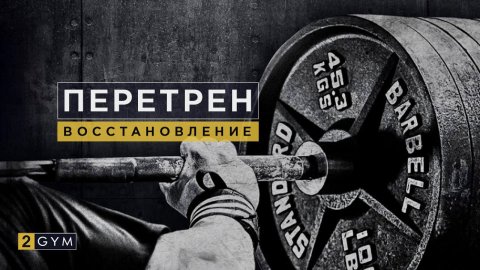
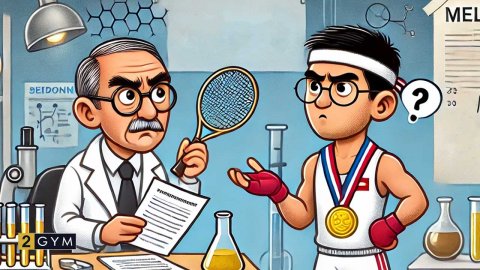
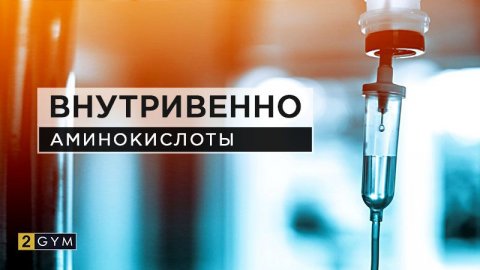

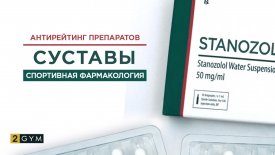
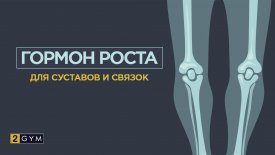
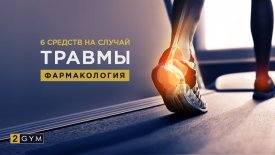
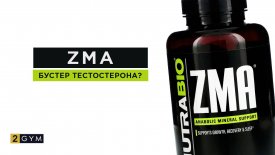
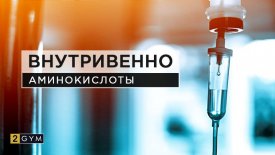


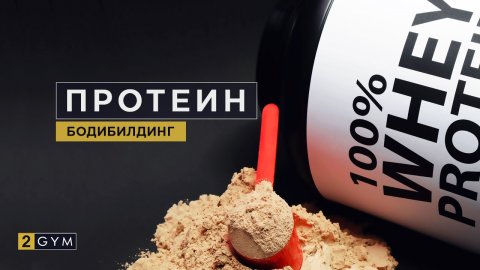
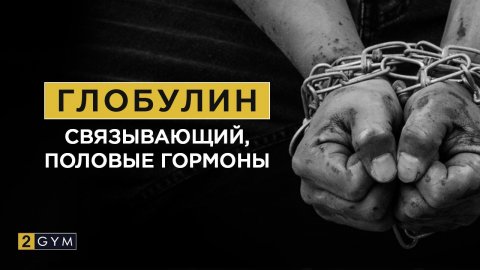

Log in with ( Sign Up ? )
or post as a guest
Be the first to comment.